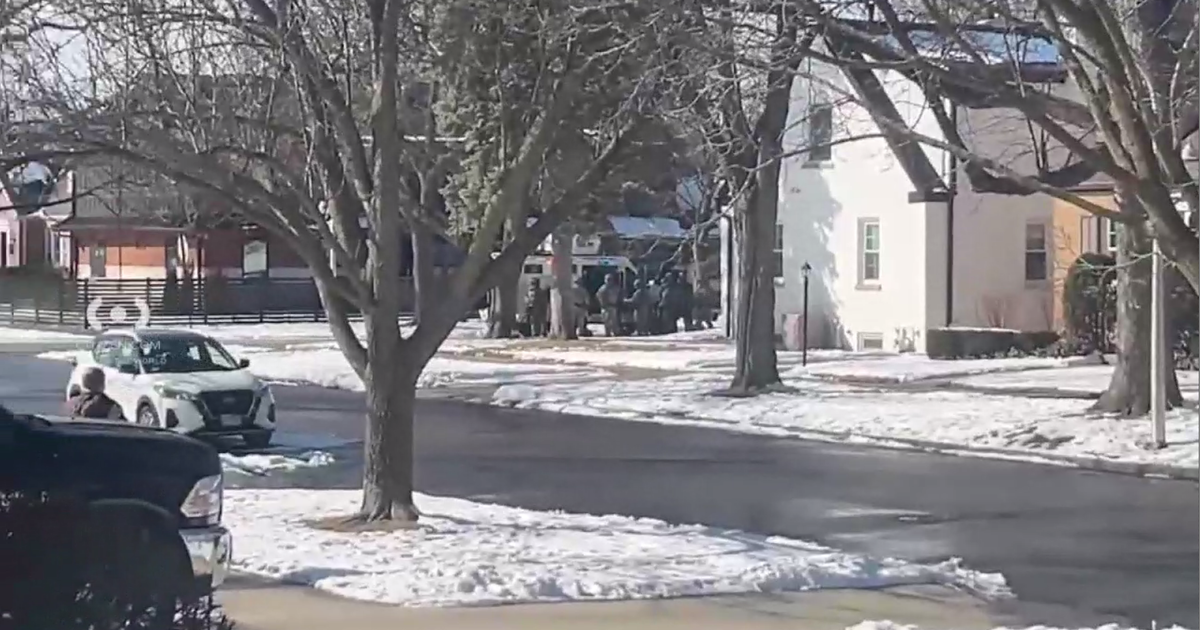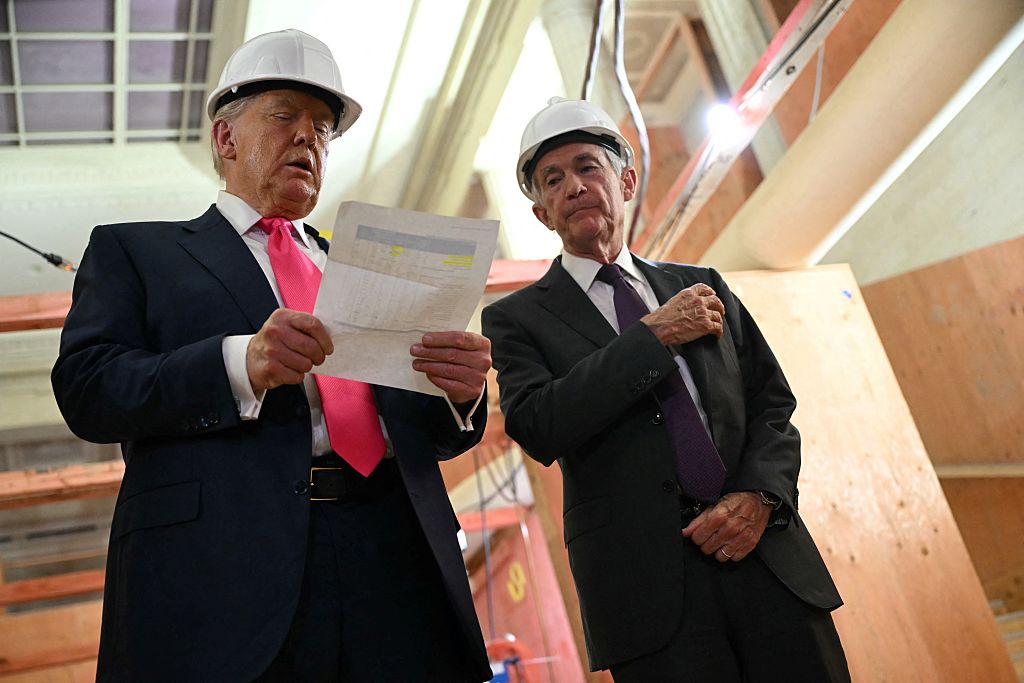Transcript: Austan Goolsbee, president of the Federal Reserve Bank of Chicago, on "Face the Nation," Dec. 17, 2023
The following is a transcript of an interview with Austan Goolsbee, president of the Federal Reserve Bank of Chicago, that aired on Dec. 17, 2023.
MARGARET BRENNAN: Now to the economy… and some good news… the federal reserve predicts slowing inflation could lead it to make three interest rate cuts next year, which means borrowing costs for mortgages and auto loans will be lowered. It also predicted inflation will fall to 2 point 2 percent, a rate close to meeting the fed's target. With more, we're joined by Austan Goolsbee, the President and CEO of the Chicago Federal Reserve. Good to have you here.
AUSTAN GOOLSBEE: Great to see you Margaret.
MARGARET BRENNAN: Or down the line, I should say. Uh, you were one of the people who voted to keep rates where they are at this 22 year high. Um, what's gonna drive the decision of when to cut and buy how much?
GOOLSBEE: Well what's, what should drive the decision in my view about monetary policy is are we meeting the job that the Federal Reserve act gives us, which is to say maximizing employment and stabilizing prices. That's what we call the dual mandate. That there's two sides to it. And over the last several years, the United States has done very well on the employment front and pretty badly on the inflation side. What will determine what, what we should do with rates is can we get the inflation back down to target? And we made a lot of progress in 2023, but I still caution everybody it's not done. And so the data is gonna drive what's gonna happen to rates.
MARGARET BRENNAN: It's not done, you say, but you, you said back in November, the economy was on a golden path. That sounded like that.
GOOLSBEE: Uh, I said it could be,
MARGARET BRENNAN: Yes, it could be.
GOOLSBEE: And- and I still think we could--
MARGARET BRENNAN: So, okay. So it is still possible to have a soft landing in other words, to avoid that, uh, recession, so many had feared. So it's still too early to declare victory.
GOOLSBEE: Yeah, for sure. It's too early to declare victory. We made a lot of progress. So the thing to remember is every time in the past that the Fed or other central banks around the world have had to get inflation down a lot. It has- basically always been accompanied by a major recession in 2023. We still get one more month of data, but 2023 looks like it's going to end up being a very substantial reduction in inflation without a big increase in the unemployment rate, that's the golden path that I talked about, but we're still above the target. We gotta get inflation down to target before it, it, it, until we are convinced that we're on path to that, it it's, it's an overstatement to, to be counting the chickens.
MARGARET BRENNAN: Okay. So you're good news, but you're cautious in that assessment.
GOOLSBEE: Um, nice. Yes. One of the good news, but cautious.
MARGARET BRENNAN: One of the, the things though that came out that was not, um, a positive statistic. The federal government said on Friday that homelessness in the United States increased 12% year over year. They pinned that as being driven by soaring rent costs and the end of pandemic assistance. How do you weigh a data point like that?
GOOLSBEE: Well, that's a concerning data point and we've got other concerning data points. For sure. You see delinquencies going up on for both credit card debt, auto lending and small business lending. We we've got to take the economy in a totality. We have a straightforward mandate, like I say, which is maximize employment and stabilize prices. We just gotta keep taking readings of the economy as we go along. And, and, and I think decide meeting to meeting in, in a, in a data dependent way.
MARGARET BRENNAN: What are your thoughts about the degree to which we need to be concerned about geopolitical risk? You still have this war in Ukraine. You still have instability in the middle east, beyond Israel now potentially impacting, uh, shipping through major ports, uh, in the middle east. How do you weigh that degree of risk to the outlook that you have?
GOOLSBEE: It's, it's definitely a degree of risk. In some sense, part of the job of central bankers be worried about everything, right? Paul Volker my old friend and mentor used to say that there was no silver lining that he could find that was bright enough, that he could not find a dark cloud. That would be big enough to block it out. So if oil prices were to start rising substantially again, the way they have in, in the last few years, that would be a major supply shock problem facing the economy. If we saw expansions of wars, if we saw collapse in China, if we saw a series of things around the world, or if we got big credit crunch, I in the United States and deterioration of the banking, um, sector, all of those would be threats. And those kind of external shocks we call 'em. They have derailed easier soft landings than this in the past in 1990 and 2001. So we just, we, we just gotta monitor those. And it's the old Midwest way, you know, there is no, there is no bad weather. There is only bad clothing. We, we prepare and, and we take the conditions as they come.
MARGARET BRENNAN: Austin Goolsbee, thank you for giving us your perspective. We'll be back.
GOOLSBEE: Thank you, Margaret.



